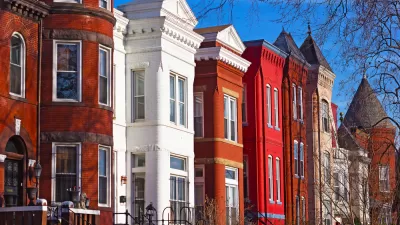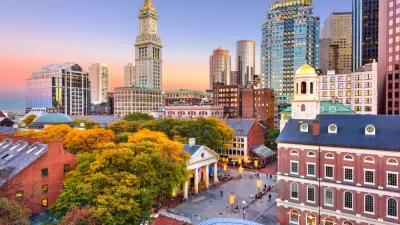Russian oligarchs and Brazilian expats may be its most prominent residents, but Miami does have a middle-class. But a new study shows they aren't exactly thriving. In fact, Miami is the toughest city in the nation to be a middle-class resident.
Although a new study [PDF] from the Center for Housing Policy and the Center for Neighborhood Technology paints a prettier picture of housing affordability in some of America's most notoriously expensive cities, its results are likely to nauseate Miami's policy makers. So, what makes The Magic City so out of touch with its middle-income citizens?
It's a combination of housing and transportation costs, along with stagnant incomes, finds Jeffrey Lubell, executive director of the Center for Housing Policy. According to the center's recent report, Losing Ground, the combined nationwide costs of housing and transportation have risen by 44 percent since 2000. In Miami, that number is even higher, jumping by 47 percent, whereas salaries have only increased by 21 percent. What's more, "[m]iddle-class households in Dade spend a staggering 72 percent of their income on transportation and housing costs, the study found."
Miami has also seen an increase in demand for rentals, but an insufficient supply, resulting in raised rents. And for homeowners, the situation is no better, Lubell asserts, "households with blemished credit and existing homeowners with underwater mortgages have been unable to take advantage of lower home prices." Finally, in terms of transportation, Miami is highly car-dependent, so driving expenses such as gas, insurance and repairs, exacerbate cost of living issues.
Author Tim Elfrink finds some comic relief in this bleak situation, encouraging middle-class families to seek out fame in true Miami style. He concludes, "All you need to do is become famous via an Internet sex tape, star in an endless series of reality television shows, make billions of dollars and -- viola! -- Miami becomes a very easy place to live indeed."
FULL STORY: Miami Is the Least Affordable City in America For the Middle-Class, Study Finds

Alabama: Trump Terminates Settlements for Black Communities Harmed By Raw Sewage
Trump deemed the landmark civil rights agreement “illegal DEI and environmental justice policy.”

Planetizen Federal Action Tracker
A weekly monitor of how Trump’s orders and actions are impacting planners and planning in America.

The 120 Year Old Tiny Home Villages That Sheltered San Francisco’s Earthquake Refugees
More than a century ago, San Francisco mobilized to house thousands of residents displaced by the 1906 earthquake. Could their strategy offer a model for the present?

In Both Crashes and Crime, Public Transportation is Far Safer than Driving
Contrary to popular assumptions, public transportation has far lower crash and crime rates than automobile travel. For safer communities, improve and encourage transit travel.

Report: Zoning Reforms Should Complement Nashville’s Ambitious Transit Plan
Without reform, restrictive zoning codes will limit the impact of the city’s planned transit expansion and could exclude some of the residents who depend on transit the most.

Judge Orders Release of Frozen IRA, IIJA Funding
The decision is a victory for environmental groups who charged that freezing funds for critical infrastructure and disaster response programs caused “real and irreparable harm” to communities.
Urban Design for Planners 1: Software Tools
This six-course series explores essential urban design concepts using open source software and equips planners with the tools they need to participate fully in the urban design process.
Planning for Universal Design
Learn the tools for implementing Universal Design in planning regulations.
Clanton & Associates, Inc.
Jessamine County Fiscal Court
Institute for Housing and Urban Development Studies (IHS)
City of Grandview
Harvard GSD Executive Education
Toledo-Lucas County Plan Commissions
Salt Lake City
NYU Wagner Graduate School of Public Service





























